Ignite talks
Video: Playlist of Openlab Workshop Ignite talks. More videos are being added every day.
![]() We're posting high resolution, closed-captioned videos of the Ignite talks this week! user:edsonm
We're posting high resolution, closed-captioned videos of the Ignite talks this week! user:edsonm
Thanks to everyone who participated!!!
Enjoy the low-rez "guerilla" webcast of the Ignite talks and the tweets and photos via #openlabworkshop.
Twitter Hashtag: [[1]]
Our fantastic speakers
Samantha Abrams, Kibibi Ajanku, Nik Apostolides, Elizabeth Barton, Fenella France, Elissa Frankle, Jeffrey Inscho
Lesley Kadish, Monica Montgomery, Kevin Novak, Eli Pousson, Rebecca Stavick, Chad Wenard, Beth Harris and Steven Zucker
Note that the speakers aren't necessarily representing their institutions
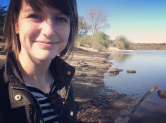
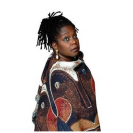
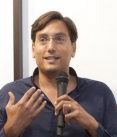
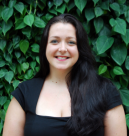
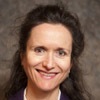
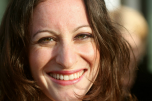
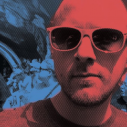
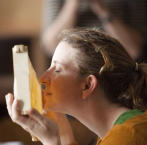
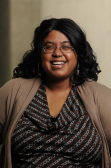
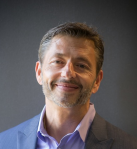
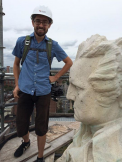
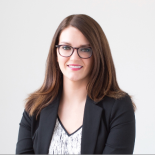
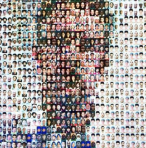 File:Openlabworkshop/ignite-smarthistory.png
File:Openlabworkshop/ignite-smarthistory.png
(Speakers in order of presentation)
Kevin Novak, 2040 Digital: Opportunity to Inspire
"The World is waiting. Students strive to learn and expand their horizons, educators seek to create and have impact and adults seek to accumulate new and impactful knowledge to improve their understanding of the World. We all have the opportunity to inspire, to have impact, promote knowledge and create the resources to educate and facilitate. We must all be digital curators and navigators and make available contextualized content in ways easily consumed by those seeking it. Lets remember it is about them not us." [[2]]
Samantha Abrams, University of Wisconsin-Madison: Reaching Out
Video and transcript "In October of this year, I organized the very first Personal Archiving Day for the Madison, Wisconsin community. It was held at the Madison Public Library, and sixteen people came. That was not enough. As an archivist-in-training, I recognize that our profession no longer operates in silos: we are not solitary professionals, and our future depends on our ability to integrate our work into the community — and people — we serve. This quick talk will suggest improvements for next year's event: one which will reach further, and do more, for the Madison community." [[3]]
Rebecca Stavick, Do Space: Don't Ask Permission
Video and transcript "Rebecca will discuss how the hacker mindset can help you overcome barriers, and she will also introduce you to Do Space, a unique community tech space in Omaha, NE." [[4]]
Lesley Kadish, Georgetown University / Smithsonian Institution: Sensory Learning in Museums
Video and transcript "Museums, galleries, and digital interfaces are hyper visual domains. But the creative method for tackling this disproportion is not just to ‘rebalance’ the senses, it is to remix the whole approach to senses. Based on my last year of research, this talk lays down a method for reconsidering the senses, starting with your own body." [[5]]
Eli Pousson, Baltimore Heritage: Local Preservation 101
"The Local Preservation School is a new online school to share the skills and knowledge you need to get your neighbors excited about local history, protect threatened landmarks from demolition, or secure resources for reinvestment in your historic neighborhood. Taking inspiration from new approaches to online learning for data-wrangling, digital history, and computer programming, we wondered how can we use the web (and open-source tools) to make it easier for people across the country to learn about historic preservation? How can we do a better job sharing the skills and knowledge needed to save historic places? This talk is a quick introduction to the project, an invitation to potential contributors and a discussion of how open education can support the effort to integrate technology into small, volunteer-led history and preservation efforts." [[6]]
Nik Apostolides, U.S. Capitol, Visitor Center: Smithsonian High
"A unique new public high school concept to teach students using a curriculum built around the content, collections, experiences, and expertise of public institutions in and around Washington, D.C. Billions of dollars have been invested in public institutions in DC, such as the Smithsonian, Library of Congress, U.S. Capitol, White House, Kennedy Center, National Archives, National Gallery of Art, NASA Goddard Space Flight Center, NIH, U.S. Geological Survey, National Park Service, etc. Smithsonian High (or whatever name the school adopts) would leverage this public investment by utilizing these and other institutions to create the heart of the curriculum for students, rather than simply as places to take field trips once or twice a school year." [[7]]
Kibibi Ajanku, Maryland Institute College of Art: Indigo Magic
"Indigo Magic is a talk about my current thesis research and exhibition.The Indigo Magic exhibition uses indigo as a lens to focus on the connections between Africa and the Americas. And furthermore, the exhibit narrows its scope to magnify a nuanced understanding of the aesthetic within African American art forms that connects directly to the West African region of the world. The Indigo Magic exhibition presents works by African-American artists who utilize the hues, the pigment, and at some points the mere spirit of indigo. The art forms include painting, sculpture, photography, videography, fiber, and performance. The magic of indigo is evident in its impact, which is as broad and varied as its history." [[8]]
Elissa Frankle , United States Holocaust Memorial Museum: Pay your F-ing Interns
"Museums: bastions of culture, bastions of backward labor practices where most internships are only open to people who can afford to work without pay, staff members do not reflect the community in which they sit, and real employment is passed off as contract work so we can avoid giving benefits to people working full-time. This talk will look at some of the major labor issues found in DC-area museums based upon the work of the #museumworkersspeak movement. It will also propose a number of basic solutions that museums in DC can adopt to ensure their workers are treated fairly and open the possibility of museum work to all, including paying your f-ing interns. Imagine the possibilities if DC-area museums came together in support of fair labor practices and a commitment to diversity in our hiring practices. How much could we change the culture of museums nationwide?" [[9]]
Jeffrey Inscho, Innovation Studio at Carnegie Museums of Pittsburgh: #MuseumTime
"I'd like to put 'museum time' in context by placing it in linear perspective against 'real world' time and 'technology time.' This Ignite talk will attempt to break down the correlation between our cultural missions rooted in long view historical perspective and the epidemic of institutional inertia that is paralyzing rapid response and innovation across the sector. I will also make the argument that these characteristics are not mutually exclusive." [[10]]
Elizabeth Barton, Longwood Gardens/University of Delaware: Podcasts for Cultural Institutions
"The rise in podcast popularity offers a great opportunity for cultural institutions with limited budgets to engage their audience. Podcasts are less expensive to produce and reach young, educated audiences. Organizations can reach out to draw people in!" [[11]]
Fenella France, Library of Congress: Visualization of Heritage Science and Humanities Data
"CLASS-D meets a current challenge in the scientific, humanities and cultural heritage realm through storage of and access to the increasing volume of digital assets. The establishment of standardized digital protocols for storing and accessing scientific cultural heritage data is critical to ensuring interoperability between heritage institutions. Interactive visualization and linking of data is the key underpinning this integration with the concept of scriptospatial bringing alive our historic collections and scientific and humanities data."
Monica Montgomery, Museum Hue: Breaking Boundaries: Professional, Personal and Political Power in Museum Practice
"A number of seismic shifts are taking place in the museum sector. People-powered collectives like Museum Hue and associations like NYCMER are organizing to rethink perspectives, advocate for needs and participate as cultural producers. Self-determined audiences are reworking the distribution of power between museums and communities. The results engender shared authority and establish new entry points for engaging diverse communities." [[12]]
Beth Harris and Steven Zucker, Smarthistory: "Millions are waiting:" GLAM and the global community of learners
"What if nearly all people understood the ways in which human beings in different places and times have used images to give expression to their most deeply held beliefs and most profound questions? What would it mean if nearly 100% of us understood the architectural vocabulary that shapes and gives meaning to our streets and public squares? What if people around the world better appreciated the meaning and beauty of each other’s visual heritage? What would it mean if nearly every museum visitor was visually and historically literate? How can museums, libraries, and others begin to look past their traditional communities and define how they can best unlock their expertise and collections to best serve a huge, global audience of learners?" [[13]]
Chad Weinard -- Burning Questions
"Museums won't change until they question assumptions. Museums will operate the way they always have, assuming the old way is best. Is that true? Museum technologists gamely build atop ancient infrastructure, assuming it's not negotiable. Really? Museum social media managers create a new content layer connecting collections to popular culture, assuming existing content strategies must be preserved, and that educators and curators can't be bothered. In 20 slides I'll question assumptions, sound the idols, poke the sleeping dragons, name the roadblocks and open new paths. I've found in my career--from academia to technology and marketing to museums--that naive questions from a different perspective are a spark for creativity. Damn the torpedoes (and silos, collections management systems, mission drift, copyright paranoia, archaic org structures...) full speed ahead." [[14]]

